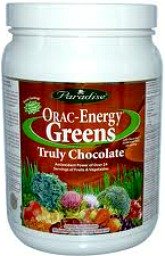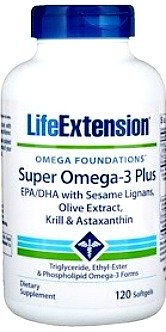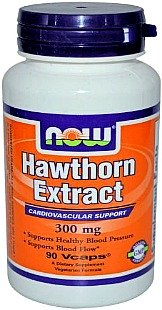Anxiety herbs: Natural solution for depression, high blood pressure and stress induced arrhythmias
Relaxing or anxiety herbs can be very helpful, when it comes to reducing stress. While adaptogens regulate hormonal producing glands and increase our resistance to stress, sedative herbs work in their own way.
They act in a similar way as beta blockers. However, herbs for anxiety don't block beta receptors, they relax stress receptors and modulate neurotransmitters thereby easing the tension. While adaptogens work better the longer you take them, relaxing herbs act quicker and better in short period of time.
If you need to reduce stress in your life, quickly, anxiety herbs would be more effective way to go. However, the longer you take them, the less effective they become, at least most of them.
TWO MOST EFFECTIVE HERBS FOR RELIEVING STRESS
Kava Kava is probably one of the best among them. It is so powerful that it was banned, for some time, because of the risk from liver damage. Kavalactones are responsible for kava kava benefits and possibly side effects.
Besides the risk of liver damage, the herb may also raise prolactin, cause sleepiness, numbness of the gums and tongue, skin rash, low blood pressure, kidney damage, blood abnormalities and interfere with blood clotting.
I personally didn't expirience any side efects. Maybe because the scientists presume that the leaves are actually toxic, not the root or at least not as much as the leaves or stems.
On the other hand, since kavalactones can help person relax without affecting mental clarity, they have shown to be very useful as depression herbs, too.
It seems that Kava-Kava acts on the limbic system by relaxing it, especially amygdala which is responsible for processing emotions, particularly fear.
It is one of few anxiety herbs which affects neurotransmitters such as GABA, dopamine and serotonin, to a certain point. Kava-Kava may improve your sense of well-being and clear thinking which is attributed to its ability to inhibit uptake of adrenaline and to reduce levels of cortisol, in the brain.
St.John's Wort is probably one of the best relaxing herbs for anxiety and mental disorders. Herbalists and even some doctors prescribe it for treating mild depression. It seems that it can raise dopamine and especially serotonin levels in the brain, while reducing adrenaline, another stress hormone.
Also, St.John's Wort can improve clearance and metabolic breakdown of drugs, supplements, chemicals and hormones from the body by affecting several enzymes. Due to this fact, it can help the liver detoxify excess estrogen which is known to cause depression, anxiety, panic attacks, irritability and fogy thinking.
It also seems that, when it comes to anxiety herbs, it can relax limbic system and amygdala to some degree but not as effectively as Kava-Kava.
These effects are mostly attributed to hypericin and hyperforin which are responsible for herb's beneficial effect. St.John's Wort even exhibits anti-bacterial effect which makes it useful in treating herpes outbreaks.
When it comes to herbs side effects, photosensitivity is the most obvious one. Because of this, avoid its use during summer, especially if there is a warning about dangerous UV exposure.
In my case, St.John's Wort was effective, especially the first few times I used it. It improved my mood and helped me fall a sleep, easier. Probably, because the herb contains high amounts of melatonin, a sleep inducing hormone.
OTHER ANXIETY HERBS AND THEIR EFFECTS
Valerian is well known and relativly safe herb, used through history for treating anxiety, sleep problems, headaches as well as heart palpitations caused by stress. It seems to be the most effective for people with irracional fears and for those who can't control themselves, due to overwhelming emotional reaction.
Valerian relaxes central nervous system thereby relieving muscle and joint pain. This makes it also useful in treating epilepsy, mild tremors and restlessness. Some studies reported that Valerian modulates GABA receptors, possibly by increasing their activity.
Although, the scientist say that its effect should be better the longer you take it, I beg to differ. When I first tried Valerian, it made me sleepy in about 15-20 minutes. It also improved my mood and alleviated stress, especially on days when I felt burned out.
However, if I took it every day, its effect became weaker. If you decide to take the herb, save it for the sleepless nights and for days when you are under a lot of stress. Combining it with other anxiety herbs may provide better results.
Passionflower works in very similar way as Valerian because of which these two relaxing herbs are often mixed together, when it comes to stress and depression herbs. It seems that it calms the nerves, by increasing the levels of gamma aminobutyric acid or GABA which can help you relax, ease the stress and fall a sleep.
Passionflower also contains various phytochemicals, including apigenin and chrysin. Although chrysin is mainly found in Blue Passionflower, it is suspected that other species of passionflower also contain it, including Passiflora incarnata or True Passionflower.
True Passionflower is mostly found in anti-stress formulas but whether it contains chrysin or not, is questionable. However, it contains benzoflavone which as well as chrysin exhibits anti-aromatase activity. Both chrysin and benzoflavone have anti-anxiety effect, by preventing aromatisation of androgens to estrogens.
This is important since high estrogen can cause depression, panic attack as well as anxiety and cancer.
Lemon Balm or Melissa is great nerve tonic which as well as few anxiety herbs, acts on the limic system. However, the herb also possess anti-bacterial and immune system stimulating properties, due to its rich phytochemical content because of which it is used as a natural treatment for herpes.
Although Lemon Balm can calm down nervous system, it is most effective for treating chronic stress. On the other hand, Melissa can inhibit TSH which makes it useful for treating hyperthyroidism. However, it can cause hypothyroidism, in otherwise healthy person.
So, don't make the Lemon Balm your first choice, while deciding to try some of these herbs for anxiety. If you choose to take it, watch out for your thyroid.
Simple way to keep thyroid in check, besides blood work, is to tilt your head back and swallow like you are swallowing food. This way you will notice, if thyroid gland becomes enlarged. Thyroid is located at the base of the neck, below adam's apple.
MILDER ANXIETY HERBS
Five depression herbs mentioned above are the most effective in relieving stress. However, there are few more relaxing herbs which although aren't effective as those five, can still help you relax.
Catnip is similar to Valerian but has weaker effect.
Skullcap can relax nervous system and it has anti-inflammatory properties because of which is often taken with Valerian.
Chamomile is often used to make tea which can help a person relax and fall a sleep, maybe due to chrysin which is found in the herb. However, some people can experience ragweed allergies, while taking it, so be careful.
Lavender oil has shown to be useful in managing anxiety and sleep problems but these effects are very weak. Also, lavander oil is somewhat toxic to humans and it can increase aromatisation of androgens to estrogens thereby leading to gynecomastia in men and potentially breast cancer in women.
Hops from which beer is made, are also one of the anxiety herbs for relieving stress and depression. They are often combined with Valerian and Passionflower. Also, Hops are estrogenic herbs, meaning that they can raise estrogen levels in the body. Good example are devoted beer drinkers with beer belly.
I am not saying not to drink beer but watch out how often and how much of it you drink.
California Poppy, Avena sativa, Vervain and Lobelia have very mild effect on the central nervous system. I wouldn't advise you to spend your money on them, if you are trying to ease the stress with sedative herbs.
TIP
If you decide to take any of these anxiety herbs, focus on the most effective ones. Also, you can consider adding adaptogens for stronger effect but consult with your doctor, before mixing these herbs.
Combining the most effective herbs for anxiety with the most effective adaptogens for stress may relieve stress quickly as well as in the long-term.
CONCLUSION
Although, anxiety herbs can relax central nervous system which makes them useful in treatment of stress, anxiety, sleep problems, high blood pressure, arrhythmia and depression, your own mind is your strongest cure.
The way you think and handle everyday problems, can have immense role in dealing with stress.
- Heart Healthy Diet: Simple Tips and Guidelines
- Learn everything you need to know about heart healthy diet and find the right one for you. Implement few simple tips for immediate benefits.
- Heart Healthy Foods: How to Get the Most from Them
- Heart healthy foods can improve cardiovascular system function. Foods good for the heart are bursting with vitamins, minerals and rejuvenating phytochemicals.
- Herbs for the Heart and Cardiovascular System
- You have heard for hawthorn and garlic but there are few other herbs for the heart which can help in treating heart disease, naturally.
- The Best Heart Health Supplements
- Besides fish oil, there are several heart health supplements which can be useful. This includes Coenzyme Q10, Salicin, vitamin D3 and few others.
- Heart Healthy Spices
- Although there are many heart healthy spices out there, each of them can help prevent and treat heart disease in its own way, thanks to different types of flavonoids in these heart spices.
- Stress and Heart Disease: How are They Connected
- Stress and heart disease are closely related. In order to decrease the risk of heart problems, we have to learn how to handle the stress and treat its consequences, if we are unable to avoid it.
- Cardio Exercises for the Heart and Cardiovascular System
- Cardio exercises are vital part of natural heart disease treatment. However, which kind of heart exercise you should preform, varies from person to person.
- Good vs Bad Cholesterol: How to Improve Cholesterol Values
- Good vs bad cholesterol conflict is somewhat misunderstood. There is no good or bad cholesterol but only high or unbalanced cholesterol.
- Good Fats vs Bad Fats: Nutritional Facts and Guidelines
- What is the real truth when it comes to good fats vs bad fats? How much dietary fats should you consume daily and what are the best food sources of healthy fats?
- High Blood Pressure Remedies
- High blood pressure remedies range from tips and lifestyle modification to herbs and supplements. However, the method that works for someone else, may not work for you.
- Normal Heart Rate: How is Regulated and Influential Factors
- Normal heart rate varies from person to person. Although, age affects resting heart rate, there are many other factors that can raise or decrease heart rate.
- How to Lose Fat: Overlooked Tips for Weight Loss
- How to lose fat is surely one of the most intriguing questions for so many people. However, the answer is very simple. Eat healthy foods, perform fat burning exercises and take care of your hormones.
- Hormones and Heart Disease Connection
- Don't neglect hormones and heart disease connection. If you want to treat or prevent heart disease you have to balance your hormones.
- Heart Disease and Immune System Connection
- Heart disease and immune system connection is often overlooked, while trying to improve cardiovascular system function. However, there are several things you can do to change this.
- Dental Health Heart Disease Connection: Facts and Tips
- Dental health heart disease connection is one of three overlooked factors, along with hormones and immune system. However, with smart and effective approach we can change this.
- Causes of Heart Disease
- There are many causes of heart disease and factors that can increase or decrease your risk for developing heart related problems. Check how to turn the tide in your favour.
- Symptoms of Heart Disease
- There are few main symptoms of heart disease. Find out which are they, how to recognize them as well as my personal experience with some of them.
- Diagnosis of Heart Disease
- Accurate diagnosis of heart disease is the first step toward recovery. You can't start with treatment before you know what kind of disease you have, obviously.
- Treatment for Heart Disease: Medications and Surgeries
- Standard treatment for heart disease consists of surgeries, medications and devices. Which one is right for you, depends on your condition.
- Heart Disease Blog
- This is a blog about natural remedies, personal stories, helpful herbs and supplements, workout program as well as other tips and facts which may help people faced with heart disease.
- Contact Me
- Ask questions and leave comments about this site here.
- About the Author of Heart Health Guide
- About the author of Heart-health-guide.com website.
- Heart Health Guide Sitemap
- This is sitemap of Heart Health Guide.com. If you want to get better overview of informations on this website, you can get it here.
Copyright © - Heart Health Guide - All Rights Reserved.



